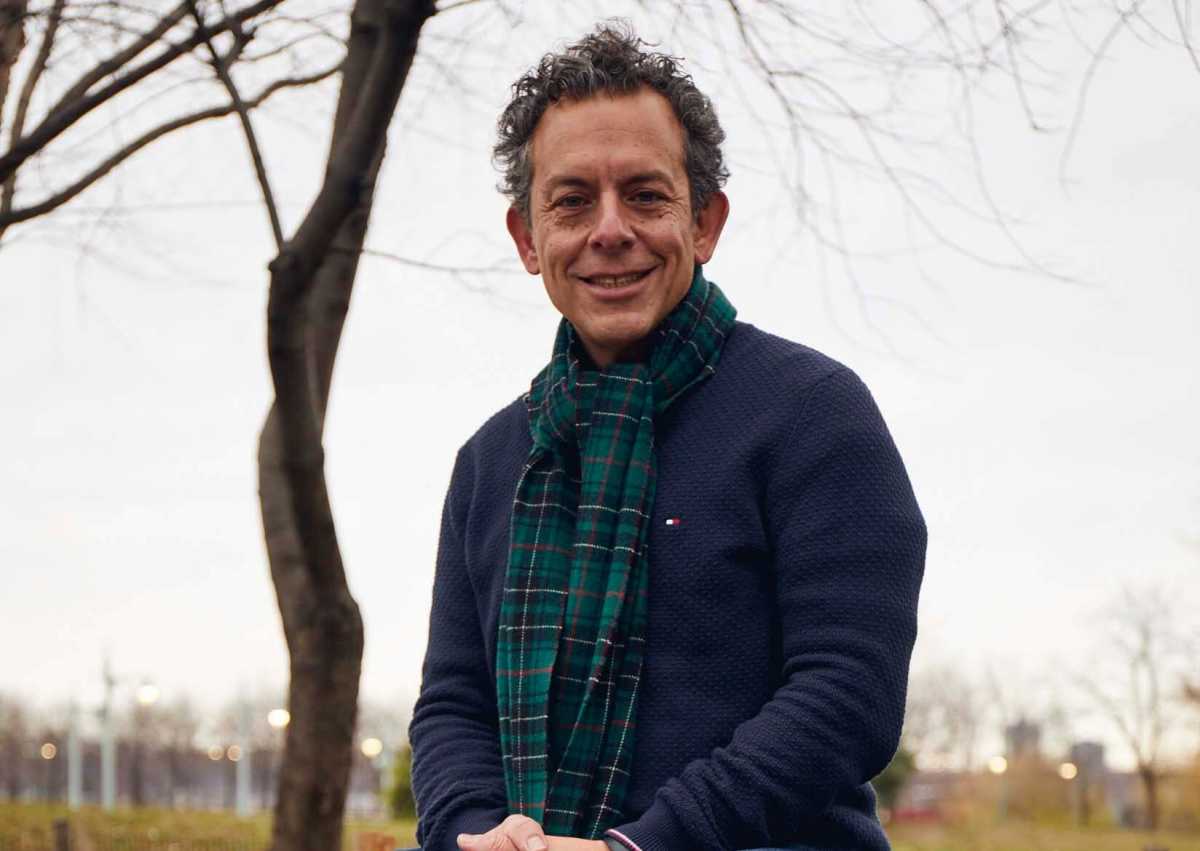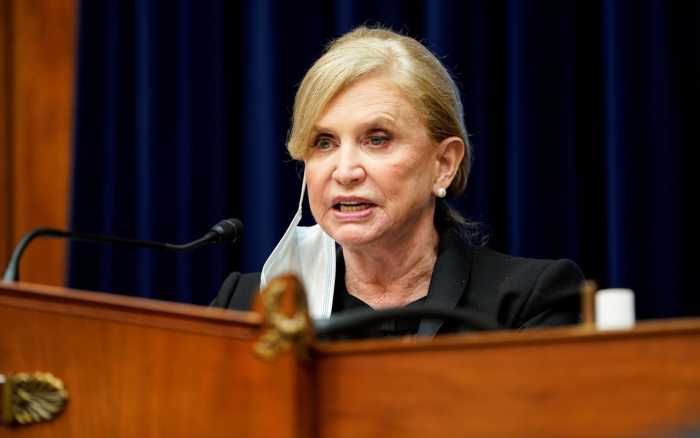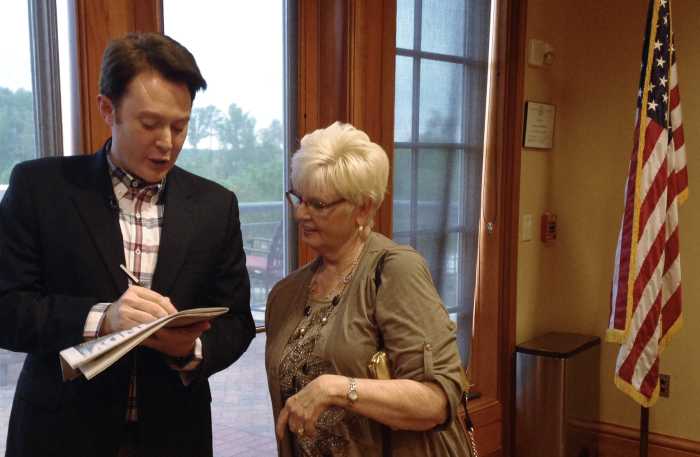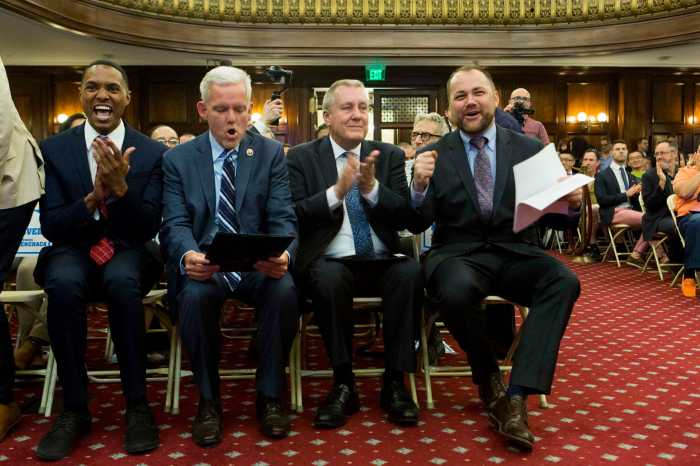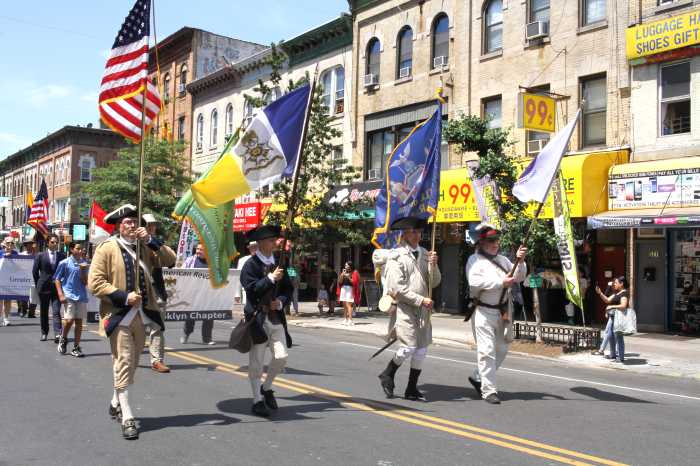Tony Simone has been a visible player, dating back 25 years, in LGBTQ, political, and non-profit circles in New York. He has worked on the staffs of the late State Senator Catherine Abate, former State Comptroller Carl McCall, and former City Council Speaker Christine Quinn; served on Hillary Clinton’s 2000 US Senate campaign and volunteered in Quinn’s several Council runs as well as her 2013 mayoral campaign; and worked at non-profits including People for the American Way and Hudson River Park Friends.
Now, the 52-year-old Democrat is looking to seize a first-in-his-lifetime opportunity — succeeding State Assemblymember Dick Gottfried in representing Manhattan’s District 75, which encompasses Chelsea and portions of Hell’s Kitchen and the West 60s. Simone was born less than a year before Gottfried — who in December announced his retirement effective at the end of this year — first assumed office.
When a legislative seat opens up for the first time in more than half a century, it’s no surprise that well known local leaders are primed to seize the opportunity. Simone is competing against a formidable field of candidates in the June 28 Democratic primary that also includes Lowell Kern, a member of Community Board 4 as well as the Hudson River Park Trust; Chris LeBrón, a former City Council staffer who also serves on Community Board 4; Layla Law-Gisiko, a 16-year veteran of Community Board 5; and Ambur Nicosia, the president of the affordable housing community Penn South.
In recent candidate forums, before the Hell’s Kitchen Democrats and the Chelsea Reform Democratic Club, the field of hopefuls largely agreed on major issues facing the district and the state. The candidates voiced similar views critical of a plan supported by Governor Kathy Hochul and Mayor Eric Adams for the area around Penn Station, saying it was driven primarily by development opportunities at the expense of the transit hub’s needs and the area’s demand for affordable housing. Each spoke with passion about the lack of progress on increasing low and moderate income housing availability and on ensuring equal resources for every student and school. And all five committed to carrying on Gottfried’s longtime push for single-payer universal healthcare in the state.
Asked how he distinguishes himself among a field of progressive Democrats, Simone responded, “The unique strength of my candidacy and our campaign is that I’ve worked on both the inside and the outside” — referring to his long experience in both the public sector and the non-profit world.
For Abate, who represented the Senate district Brad Hoylman now serves, and for Quinn, Simone noted, he brought considerable effort to hate crimes issues, which on Manhattan’s West Side often involved attacks on LGBTQ people. Meanwhile, at People for the American Way, the progressive group founded by TV producer Norman Lear, he focused primarily on immigration issues facing the city. One of the accomplishments he points to in his five-plus years at Hudson River Park Friends, a non-profit fundraising partner of the government-created Hudson River Park Trust, is the successful effort to have a major NYPD car tow pound removed from 12th Avenue at the river between West 36th and 37th Streets.
If elected to the Assembly, Simone said, “I would have a significant network — in government and the non-profit world — to tap into.” Those connections, he emphasized, not only speak to his advocacy and organizing skills, but also to his ability to work in coalition.
“I would never say I’ve done these things alone,” he said of his accomplishments.
Working in coalition is, of course, a prerequisite for success in Albany — and will likely be particularly important if Simone and other progressive legislators are to build on the groundwork Gottfried has laid through years of advocacy for his single-payer New York Health Act. Simone noted that one of the biggest hurdles is labor union concern that the generous healthcare benefits they’ve won for their workers over the years — often as a trade-off for not gaining higher wages — could be eroded by a single-payer approach. He said he believes there is opportunity for common ground given union leaders’ good will, but acknowledged that cost is also making legislative leaders cautious. Simone said he is in favor of having the wealthiest New Yorkers offset any unpaid costs of a single-payer program through higher taxes.
On the Penn Station redevelopment issue, Simone said there is no need to rush into a plan that he and his fellow candidates agree privileges development over any certainty about improvements to Penn Station’s transportation network or the construction of adequate affordable housing — the funding for both of which is reliant on revenues from the development projects.
“It is a development plan and not a transportation plan,” he said, in urging a “pause” in the current rush to finalize approval.
Addressing crime and criminal justice reform, Simone was careful to emphasize anxieties about recent violent incidents in the city.
“First, I want to say clearly we have a public safety issue and a mental health issue,” he said.
Simone, however, does not agree with the mayor’s call for Albany revisiting the bail reform measures it put in place in 2019, calling that demand “a red herring.” Instead, his focus is on strengthening public mental health efforts, including creation of supportive housing and even “humane” enforcement of Kendra’s Law, which provides for court-ordered, involuntary outpatient care. Supportive housing, he said, must be a statewide initiative to ensure that the city does not become a permanent magnet for people experiencing mental health problems.
Simone supports the full decriminalization of sex work — an issue of growing importance on the LGBTQ rights agenda, but one that divides those advocating elimination of penalties only for those offering sex services from other activists who argue that only by removing sanctions for everyone engaged in the sex trade can the industry be made safer. He hastened to add that there is a clear difference between sex work and sex trafficking, which he emphasized must be combated.
Simone used the opportunity of discussing LGBTQ youth to decry Mayor Adams’ recent appointment of three homophobic figures to his administration. He said he is not yet certain whether the mayor’s actions “raise any bigger issues” regarding his commitment to the LGBTQ community.
In a primary contest where much of the media attention is likely to be on a contested gubernatorial race, endorsements could play a pivotal role in the down-ballot 75th District Assembly face-off. Here, Simone has significant advantages. He’s not only been endorsed by the iconic incumbent Gottfried, but also has the support of three LGBTQ heavy hitters — former City Council Speaker Christine Quinn, former State Senator Tom Duane, and, as of February 24, Assemblymember Deborah Glick, the longest serving LGBTQ public official in New York who represents the adjacent 66th District.
Among those Democratic clubs that have made endorsements, Simone is neck and neck with two of his opponents. The Chelsea Reform Democratic Club is backing Law-Gisiko; LeBrón edged out Simone for the Hell’s Kitchen Democrats nod; and Simone has the support of the 504 Democrats, a group that fights for the rights of people with disabilities, an issue first addressed in federal law in Section 504 of a 1973 statute.
Simone is not the only LGBTQ candidate working to win in what is one of the most heavily LGBTQ Assembly districts in the state. Nicosia, the Penn South president, is an out lesbian. Her campaign has not, as of press time, responded to several requests for an interview.
[Editor’s Note: Nicosia said she decided on February 27 to suspend her campaign for Manhattan’s District 75.]

